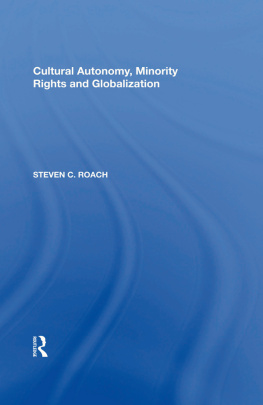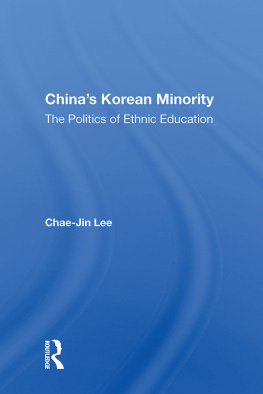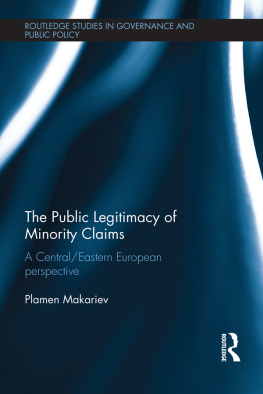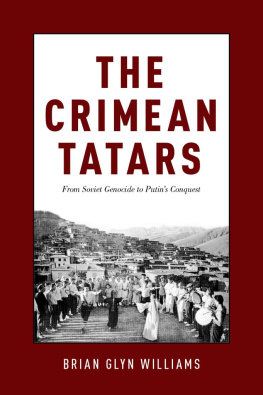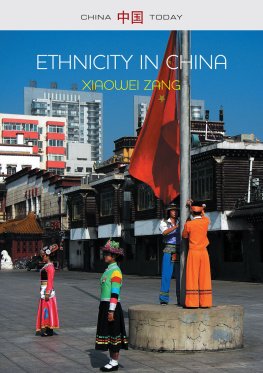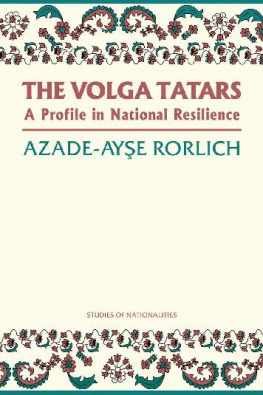
Tatarstan's Autonomy within Putin's Russia
This book explores how the Volga Tatars, the largest ethnic minority within the Russian Federation, a Muslim minority, achieved a great deal of autonomy for Tatarstan in the years 1988 to 1992, but then lost this autonomy gradually over the course of the Putin era. It sets the issue in context, tracing the history of the Volga Tatars, the descendants of the Golden Horde whose Khans exercised overlordship over Muscovy in medieval times, and outlining Tsarist and Soviet nationalities policies and their enduring effects. It argues that a key factor driving the decline of greater autonomy, besides Putins policies of harmonisation and centralisation, was the behaviour of the minority elites, who were, despite their earlier engagement in ethnic mobilization, very acquiescent to the new Putin regime, deciding that co-operation would maximise their privileges.
Deniz Din completed his doctorate at Middle East Technical University, Ankara, Turkey
Routledge Contemporary Russia and Eastern Europe Series
Czech Democracy in the New Millennium
Edited by Andrew L. Roberts with Stanislav Balk, Michal Pink,
Marek Ryb, Peter Sp, Petra Svainov and Petr Voda
Russias Food Revolution
The Transformation of the Food System
Stephen K. Wegren
The Sense of Mission in Russian Foreign Policy
Destined for Greatness!
Alicja Curanovi
Soviet Films of the 1970s and Early 1980s
Conformity and NonConformity Amidst Stagnation Decay
Edited by Marina Rojavin and Tim Harte
Europe, Russia and the Liberal World Order
International Relations after the Cold War
Timofei Bordachev
Russia after 2020
Looking Ahead after Two Decades of Putin
J. L. Black
The Russian Minorities in the Former Soviet Republics
Secession, Integration, and Homeland
Anna Batta
Tatarstans Autonomy within Putins Russia
Minority Elites, Ethnic Mobilization, and Sovereignty
Deniz Din
The State and Big Business in Russia
Understanding KremlinBusiness Relations in the Early Putin Era
Tina Jennings
For more information about this series, please visit: www.routledge.com/Routledge-Contemporary-Russia-and-Eastern-Europe-Series/book-series/SE0766.
First published 2022
by Routledge
2 Park Square, Milton Park, Abingdon, Oxon OX14 4RN
and by Routledge
605 Third Avenue, New York, NY 10158
Routledge is an imprint of the Taylor & Francis Group, an informa business
2022 Deniz Din
The right of Deniz Din to be identified as author of this work has been asserted in accordance with sections 77 and 78 of the Copyright, Designs and Patents Act 1988.
All rights reserved. No part of this book may be reprinted or reproduced or utilised in any form or by any electronic, mechanical, or other means, now known or hereafter invented, including photocopying and recording, or in any information storage or retrieval system, without permission in writing from the publishers.
Trademark notice: Product or corporate names may be trademarks or registered trademarks, and are used only for identification and explanation without intent to infringe.
British Library Cataloguing-in-Publication Data
A catalogue record for this book is available from the British Library
Library of Congress Cataloging-in-Publication Data
A catalog record has been requested for this book
ISBN: 978-1-032-06958-6 (hbk)
ISBN: 978-1-032-06959-3 (pbk)
ISBN: 978-1-003-20471-8 (ebk)
DOI: 10.4324/9781003204718
This book is based on my PhD dissertation I submitted at the International Relations Department of Middle East Technical University (METU) in June, 2017. The doctorate research as well as my Masters Studies research at the Eurasian Studies Department of METU were funded by the METU Academic Staff Training Program (ODT-YP). I am eternally grateful to my professor, Mustafa en, who agreed to be my advisor at the beginning of my masters program and continued in this role during my PhD program. Without his support and vast knowledge, it would have been very difficult for me to finish both my PhD and MA dissertations. I also would like to express my deep gratitude to my PhD co-advisor Ik Kuu. Her guidance and insight on Central Eurasian Studies were very influential. Special thanks also goes to Oktay Tanrsever at METU, as his valuable insight on Tatarstan and Russian politics assisted with improving the PhD dissertation. Another of my professors at METU, Pnar Bedirhanolu, was also on my PhD examination committee and is the architect of this book project. She advised me to send the dissertation to Routledge Publishing. I express my deepest gratitude to her. She is a role model scholar with her insight and critical thinking.
I am indebted to a large number of people in Tatarstan and Russia who assisted with my field research for my doctorate and thus this book. Between September 2013 and November 2016, I visited Kazan on three occasions. During the first visit, Tatiana Titova from Kazan Federal University was my host advisor. I would like to thank her for her assistance. I am also highly grateful to Vasil Sakaev from Kazan Federal University who organized my interviews with the prominent political figures of Tatarstan in Kazan and Naberzhnye Chelny. Vasil Sakaev was also my host advisor during my last visit to Kazan. Without his assistance in organizing the interviews, this book would not have reached its current level. I would like to thank the Kazan Federal University Special Russian language program lecturers for their efforts in helping me with what is a difficult foreign language to learn. I would also like to thank the Kazan Federal Universitys Lobachevskiy Library in which I found sources that were valuable for my dissertation.
Apart from METU and Kazan Federal University, the Aleksanteri Institute of the University of Helsinki gave me the opportunity to conduct research for several months with prominent Russian Studies scholars at the beginning of my PhD journey. The environment of the institute motivated me to pursue my academic journey in the field of Russian Studies. I would like to particularly thank Markku Kivinen and Markku Kangaspuro from the Aleksanteri Institute. I would also like to thank many of my colleagues and friends in Northern Cyprus who helped me during my three-year teaching experience after graduating from the PhD program while working as a lecturer in the field of International Relations. Among my friends from Northern Cyprus, I am particularly grateful to Simon Thompson, who corrected the English language and grammar of this book. The process of writing the book has been made considerably easier with the support of the editorial team of the Routledge Contemporary Russia and Eastern Europe Series. I would like to thank the series editor Peter Sowden and an anonymous reviewer who enriched and strengthened the book project through their suggestions and feedback.
Many thanks go to my friends Vasima Khisamova, Inna Zavyalova, Sotirious Longinos, Olga Randolainen, Kazm Ate, Oguzhan Gkdoan, Adem elik for their support and encouragement during my PhD journey and thus for this book. I am grateful to the professors at the Politics Department of Ankara University, Taansu Trker and Fethi Akel, for their participation, suggestions and criticisms at my PhD jury defense. I can also not neglect the contribution of my interviewees in Tatarstan, particularly Sergey Sergeyev, Rafael Khakimov, Damir Iskhakov, Indus Tagirov, Vladimir Belyaev and Rustam Gibadullin. I am highly grateful that they consented to participate in the interviews with me and gave their permission to use their highly influential knowledge derived from these interviews. I would also like to thank the journals, publications and websites for their permission to reuse epigraphs and tables in this book.


